A peculiar trait of cruel regimes down the centuries has long been their obsession with image. The most brutal, authoritarian and unaccountable of states pay a level of attention that borderlines on the obsessional to not merely how they are viewed not by their own citizenry, but also by other states and powerful actors on the international stage.
Nowhere is this truer than in the Islamic Republic of Iran, where untold amounts of public cash are funnelled every year into pro-regime, external-facing institutions that aim to bolster the regime’s fraught image overseas and advance the ideological principles it claims as a source of legitimacy.
These pro-Iran outfits extend not merely to media outlets such as Islamic Republic of Iran Broadcasting and the ubiquitous PressTV, but to online disinformation networks, cultural institutions and Iran-sponsored local organizations that – wittingly or unwittingly – have become a proxy for the Islamic Republic in their communities.
IranWire’s new series of articles aims to lift the lid on how pro-Islamic Republic propaganda manifests in different countries around the world. In partnership with local journalists, we’ll shed light on local support bases for the Iranian regime, how their narratives are spread and gain currency, and the sometimes devastating impact this has had on local democracies.
Our first article focused on the inroads made by Hezbollah and the Islamic Republic of Iran in Argentina. The second, by the Kano-based journalist Aminu Abubakar, looks at the multi-faceted media alliance between controversial Shia group the Islamic Movement of Nigeria and the Iranian regime.
***
In December 2015, a military crackdown on the pro-Iran Islamic Movement in Nigeria (IMN) killed around 350 people. Ever since then, there have been deliberate and sustained attempts by this militant group to portray the incident – and subsequent clashes – as the religious persecution of a Shia minority within Nigeria’s largely Sunni Muslim population.
The IMN seeks to establish an Islamic theocracy in Nigeria via an Iran-style Islamic Revolution. It is supported in this endeavour by Iranian state-controlled media outlets, spearheaded by Press TV. In Nigeria this channel has consistently airied IMN propaganda, depicting the imprisoned IMN leader Sheikh Ibrahim Yaqoub Zakzaky as a religious martyr and his Shia followers as victims of a state-sponsored campaign of repression.
Birth of a Copycat Movement
For decades the IMN has been at loggerheads with Nigeria's secular authorities and is viewed by the government of this West African country as a national security threat. This has led to regular violent confrontations. Its leader, Sheikh Ibrahim Yaqoub Zakzaky, who is now 66, has himself been periodically incarcerated for alleged incitement and subversion. He is currently in prison having last been arrested in the December 2015 raids.
The group began life in 1978, as a Muslim student movement started in 1978 as a Muslim student movement at Ahmadu Bello University, in the northern Nigerian city of Zaria. The group openly denounces the Nigerian secular state and proclaims its goal of establishing an Islamic state. Zakzaky was inspired by the Egyptian Muslim Brotherhood and later emboldened by the 1979 Islamic Revolution in Iran. He went on to establish close ties with the Islamic Republic. This allegiance led to a rift with vocal and influential Saudi-funded Wahhabi clerics.
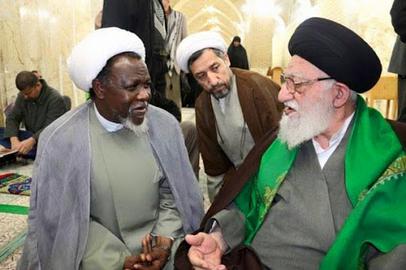
Ever since the IMN’s foundation Zakzaky has come into conflict with successive Nigerian governments over his radical revolutionary posturing, and has been in and out of prison for a cumulative period of 13 years. Even as a then-Sunni Muslim, he was on a collision course with the authorities, who carried out several brutal crackdowns on his movement for calling for an Islamic state.
Zakzaky remained a Sunni until 1996, when he and his followers converted to Shia Islam. This pitched them against the majority Sunni Muslim population and led to a schism within the movement. Several of Zakzaky’s closest lieutenants, who baulked at the idea of a Shia conversion, split from the IMN to form a rival Sunni faction called Jama’atu Tajdidil Islami (JTI), with the specific aim of compelling a Sunni-led Islamic RevolutionSunni Islamic revolution in Nigeria. The conversion of IMN members also raised concerns among other Shia Muslims in Nigeria, who objected to Zakzaky’s confrontation with the state in the name of their faith.
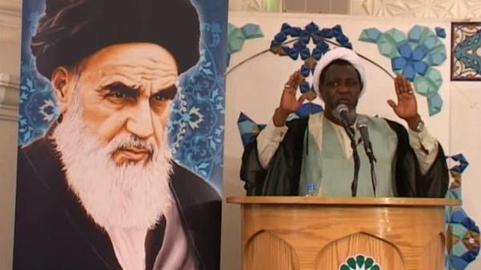
Zakzaky’s conversion to Shia Islam brought him closer to Iran – and by extension, to its religious and political establishments, from which he drew substantial financial support. This made the IMN stronger and better-organized. The group attracted more converts from Nigeria’s impoverished rural communities, where it provided and continues to provide social services including water and medical aid: basic necessities the government has failed to provide.
Harming Shia Muslims in Nigeria
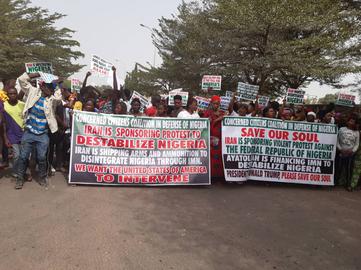
Within Nigeria there exists at least three other groups of Shia Muslims, comprising professionals, academics and businessmen, which precede the IMN. Among them are the Rasulul A'zam Foundation (RAAF), based in Kano, the Thaqalayn Cultural Foundation in Kaduna, and the Al-Huda Islamic Cultural Center in Abuja. These are affiliated with different Shia organizations led by clerics who spent years studying theology in seminaries in Iran, and their focus is on law-abiding theological and educational activities under the laws of the state, rather than being an Iranian political appendage in the manner of the IMN.
As a consortium of professionals who are well-integrated within Nigerian society, this group accuses Zakzaky of having formed a personality cult around himself, of manipulating the tenets of Shia Islam,and of flouting religious fatwas. The group is worried that Zakzaky is giving their creed a bad name and pitting wider Nigerian society against Shia Muslims.
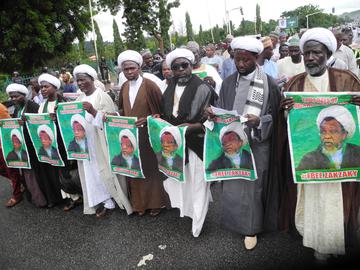
In practice, the IMN operates like a state within a state. It has established its own leadership structure across Nigeria, with Zakzaky at the helm. The group has its own elaborate militant wing which conducts military parades supervised by Zakzaky, and relays his orders to followers through lieutenants spread around the country. The IMN denounces democracy as anti-Islamic, refuses to register as a religious organization as it is required to under Nigerian law, and does not participate in elections. As such, it has no formal political representation.
How Does Iran Help the IMN?
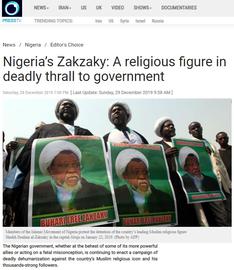
The Iranian state-controlled news channel PressTV regularly airs footage of the IMN’s street protests, which are staged without state approval and sometimes end in violent confrontation with Nigerian security personnel.
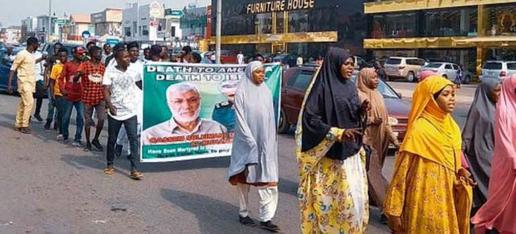
PressTV also pushes a religious persecution narrative with regard to the IMN. The channel operates in cahoots with the London-based so-called Islamic Human Rights Commission (IHRC), which is chaired by the Iranian-born Masood Shadjareh, a long-time friend of Zakzaky whom PressTV uses to support its pro-IMN propaganda broadcasts. Masquerading under the banner of human rights, Shadjareh repeats whatever distorted information he is supplied with by Zakzaky’s lieutenants, with whom he is in regular contact. For instance, in September 3, 2019, PressTV hosted an interview with Shadjareh in which the broadcaster opened with the following lines: “Political commentator Massoud Shadjareh says the Nigerian government needs to change its behavior toward the Islamic Movement in Nigeria and its leader, Sheikh Ibrahim al-Zakzaky.”
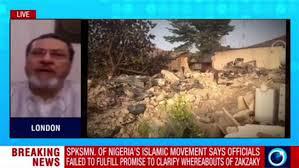
The IHRC also publishes pro-IMN propaganda on its own news pages. In the immediate aftermath of the December 2015 crackdown it launched an expansive “Free Zakzaky” campaign in support of the incarcerated would-be crusader, claiming his imprisonment was unlawful. An op-ed by Zakzaky’s daughter Nusaiba appeared on the IHRC’s website as early as December 21, 2015, claiming: “My father has never identified himself as a leader of a sect, or the Islamic movement as a sect. The Islamic movement’s main agenda was to fight the injustice of the system that we are forced to live under in this country.”
Pawn in a Middle Eastern Proxy War
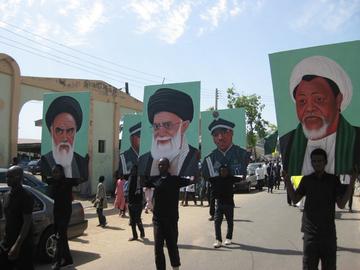
The IMN displays Iranian flags and carries portraits of Imam Khomeini aloft at its demonstrations, alongside abusive dummies of American and Israeli flags. This is enough for the Iranian regime to support IMN despite repeated warnings from other Shia adherents.
Iran also finds in IMN a veritable tool for proxy confrontation with Saudi Arabia, its arch-rival in the region. As the most populous country in Africa, home to 200 million souls and a huge Muslim population, Nigeria is the perfect bride for the two adversaries in their geopolitical tussle. Saudi Arabia funds Wahabbist organizations in Nigeria to spread virulent hate against Shia Muslims and Iran. Iran’s PressTV, meanwhile, consistently ignores the complaints it receives from non-IMN Shias in Nigeria about the lies and distortions it churns out.
In a December 28, 2019, a pro-IMN piece on PressTV’s website declared: “The Nigerian government, whether at the behest of some of its more powerful allies or acting on a fatal misconception, is continuing to enact a campaign of deadly dehumanization against the country’s Muslim religious icon and his thousands-strong followers. The acts of brazen oppression that have been visited upon Sheikh Ibrahim al-Zakzaky, the head of the Islamic Movement of Nigeria (IMN), as well as his long-suffering next of kin and supporters, comprise a litany, which is found atrocious by even those who have no sympathy for the subjugated community’s faith, race or nationality.”
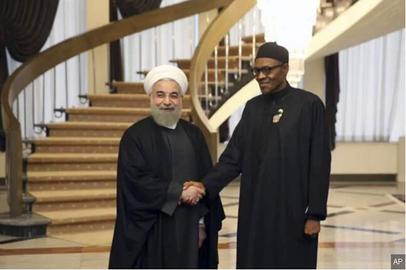
This proxy war was encapsulated in Tehran and Riyadh’s respective responses to Zakzaky’s incarceration, which took place amid the deadly military crackdown. On December 15, 2015, two days after the assault on IMN, the Iranian President Hassan Rouhani held a telephone conversation with his Nigerian counterpart, Muhammadu Buhari. During the discussion he called on the Nigerian head of state to find a peaceful means of resolving its disputes with IMN, at a time when the country was fighting the Salafist terror group Boko Haram.
Two days later, Saudi Arabia’s King Salman bin Abdulaziz also had a chat on the phone with Buhari in which, by contrast, he expressed his country’s support for Nigeria in its “fight against terrorism”.
Buhari’s first ever presidential visit to a foreign country after his inauguration in May 2015 had been to Iran, much to the chagrin of Saudi Arabia. But Iran’s ongoing response to the IMN situation has squandered this initial goodwill. In May 2016 the then-Iranian ambassador to Nigeria, Saeed Koozechi, called for the release of Zakzaky and described his continued detention as "unfair", which sparked outrage in Nigeria and strained Iran’s diplomatic relations with the country. Koozechi was replaced four months later in an attempt by Tehran to mitigate the damage.
How Were the Clashes Covered?
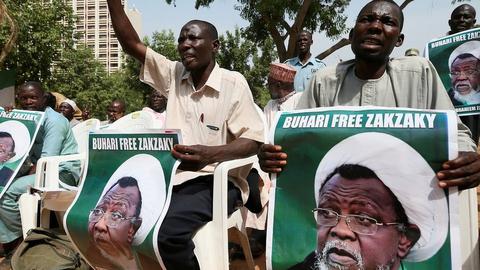
In July 2014 a total of 34 members of the IMN, including Zakzaky’s three sons, were killed in a military crackdown on a pro-Palestine protest organized by IMN in Zaria, northern Nigeria. The incident led to wide-spread condemnation of the Nigerian army and Zakzaky made a formal complaint to the United Nations Human Rights Commission.
Undeterred, the military enacted a further deadly assault deadly crackdowns on the IMN on December 12 and 13, 2015. Soldiers opened fire on IMN members who had blocked a major road outside the group's husseiniyya or religious center, where hundreds of people had gathered for a religious ceremony. In the ensuing traffic jam the convoy of Nigerian Chief of Army Staff Yusuf Buratai was among the blocked cars and the military accused the IMN of his attempted assassination, leaving the soldiers with no option but to open fire. The IMN denies this charge, though video footage did show unruly IMN members in a hot exchange with military officers as they refused to let them pass.
This military crackdown left at least 348 dead, according to figures released by the government and rights groups, and this time the dead included Zakzaky’s deputy, his three children, a sect spokesman and the IMN’s head of security. Zakzaky himself was seriously injured in the attack and taken into military custody, while his home and several IMN religious centers were destroyed. Scores of other IMN followers were also arrested.
Days later, a broadcast by PressTV accused three separate entities – the Christian Association of Nigeria (CAN), the umbrella body of all Christian denominations in Nigeria, Saudi Arabia, and the Nigerian military – of co-orchestrating the massacre of IMN members. The CAN complained and PressTV was forced to retract the allegations, offering the religious body a belated right of reply.
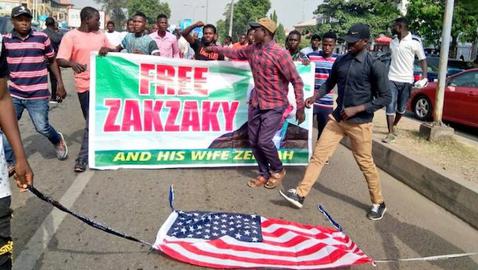
Despite the apology, since this incident PressTV has only intensified its pro-IMN propaganda. It regularly portrays the Nigerian state as a violator of religious freedoms and a repressor of the Shia faith, despite or perhaps spurred on by the the Nigerian government’s court order-backed proscription of IMN as a terror group.
On August 6, 2019 PressTV said in a broadcast: “The Islamic Movement of Nigeria (IMN) tells Press TV that the US, Israel and Saudi Arabia have been behind the Abuja government’s bloody crackdown on supporters of senior Muslim figure Sheikh Ibrahim Zakzaky, who has been jailed for over four years.”
It has continued to broadcast the IMN’s street protests in Nigeria’s capital, Abuja. The demonstrators demand the release of Zakzaky, who currently standstanding trial for the murder of a soldier during the Zaria incident. Most of these protests end in violent clashes between the IMN and the Nigerian security personnel deployed to disperse them. PressTV portrays the protesters as peaceful, though past footage of the altercations has shown otherwise.
Two other satellite TV channels based in Iran, Al-Wilayah and Hadi, are wholly operated by IMN members studying theology in Iran. Both stations broadcast in Hausa, a language spoken in northern Nigeria and across West Africa, and dedicate their coverage almost entirely to spreading pro-IMN propaganda.
A Fresh Wave of Violence and Propaganda
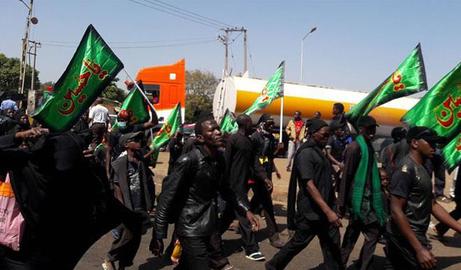
In October 2016, the Kaduna state government in northwestern Nigeria outlawed IMN in its entirety and designated it as a security threat, based on the recommendation of a judicial inquiry into the deadly Zaria clashes. The ban took place three days before the Shia holy day of Ashura, and Saudi-funded Wahhabi clerics in Nigeria seized on the opportunity to provoke attacks on Shia Muslims, whether IMN or non-IMN, by enervating their followers with fiery rabble-rousing sermons.
Armed with machetes and cudgels, mobs from the Izala group – the main Wahhabi organization in Nigeria – launched a bloody assault on their Shiite fellow citizens. Members of the IMN were particularly targeted, along with those who attended the annual Ashura processions in at least four cities: Kaduna, Kano, Sokoto and Jos. In the town of Funtua alone, ten people were killed when soldiers and policemen opened fire on IMN members during a procession, in defiance of the ban on all religious gatherings.
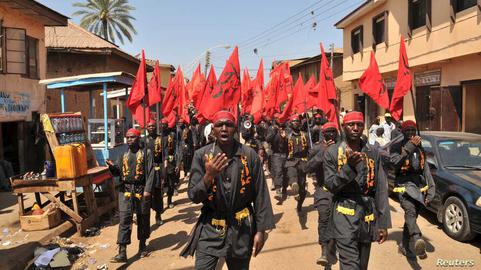
The worst riots broke out in Kaduna, the traditional bastion of Izala, where the ban had been issued. For two days mobs combed the streets of several neighbourhoods, attacking IMN members, looting and burning their homes. These incursions led to the destruction of the group’s headquarters and the deaths of at least two IMN adherents, with several others injured.
Kaduna state governor Nasiru Ahmed El-Rufai was forced to warn off the would-be attackers and arsonists, adding: “The duty of every citizen is to report every illegal action or suspicious activity to the security agencies”. But he also spoke at length on television about the difference between IMN adherents and other Shia Muslims, insisting the ban had only been imposed on IMN due to its political activities, not its members’ faith.
To further clear the air on the decision, national state-run broadcaster the Nigerian Television Authority (NTA) created a short documentary about a different, non-IMN Shia organization in Nigeria, the Rasulul A'zam Foundation, to illustrate this group's differences to IMN.
Throughout these exchanges, the Iranian propaganda machine continued spreading distorted information about the face-off between IMN and the state. Despite the government’s statements to the contrary, the Islamic Republic portrayed the ban as the religious persecution of minority Shia Muslims. This propaganda in turn compelled street protests in some parts of Europe, Asia and the Middle East by beguiled Shia Muslims and human rights activists alike.
On August 23, 2020, PressTV announced: “The Nigerian government has been cracking down on Shia Muslim ceremonies for several years and has also banned the IMN, whose members regularly take to the streets of the capital Abuja to call for the release of the their leader.”
The propaganda reached fever pitch with the claim that Zakzaky, who had lost an eye and was temporarily paralyzed on one side from the Zaria violence, was critically ill in detention and on the verge of death. Broadcasts accused the Nigerian government of denying him access to medical care with the intention of killing him.
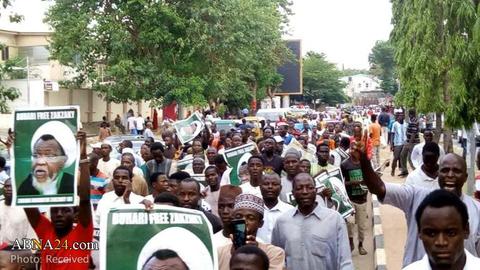
The IMN then claimed that the detained cleric had been deliberately poisoned and would die if he was not sent for medical care abroad: a myth that was parroted by the Iranian media and Shadjareh, who used every available sympathetic outlet to spread this and other disinformation.
This false revelation led in turn to more violent street protests in Nigeria, and to more strident demonstrations abroad. Eventually the Nigerian authorities were forced to present Zakzaky to journalists to disprove it.
Blatant Disinformation Surrounds Hospital Trip
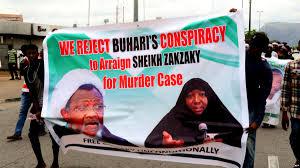
Zakzaky took his case to court, challenging his detention as illegal and demanding two billion naira (US$5.2 million) in compensation for the destruction of his home by the military. The court ruled in his favour and the Nigerian government appealed its decision. Meanwhile, Kaduna state government, in whose jurisdiction Zaria falls, charged Zakzaky and his wife Zeenat with murder in Kaduna. The pair were transferred from Abuja to Kaduna to stand trial.
Throughout the case, Zakzaky’s lawyers consistently harped on his deteriorating health and the risk of his losing his other eye. The court trying Zakzaky for murder relented, giving him leave to seek medical attention abroad in a hospital of his choice, under Nigerian government supervision.
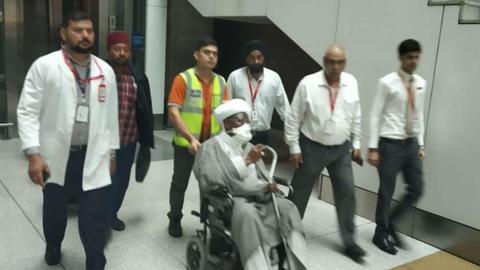
Zakzaky and his wife accordingly flew to India in August 2019. Footage quickly circulated of his arrival, in which he was captured wearing a facemask and a neck collar as he was wheeled into a waiting ambulance, inside which he was laid out on a stretcher and borne in this position all the way to the state-of-the-art private Medanta Hospital. Based on these videos, an uninformed observer would assume Zakzaky was critically ill and perhaps, indeed, on the verge of death.
Hours after Zakzaky’s arrival, however, reality followed suit. Zakzaky insisted on being given his passport, which had been in the custody of the Nigerian officials accompanying him. He asked to be allowed to book into a hotel of his choice instead of the hospital, complaining that the crowds who had gathered outside were not being permitted to visit him. He insisted on being treated by a preferred team of doctors from outside the hospital, claiming he had no confidence in the initial medical team and insinuating they had plans to harm him and his wife.
There was a stalemate. Zakzaky would not allow doctors at the hospital to examine him, and neither the Nigerian officials nor the Indian authorities would grant his requests. Zakzaky, a man ostensibly so sick as to require a stretcher, began sending video clips to his followers in Nigeria, updating them on what he called his “ordeal”. But the “gravely sick” claim was blown when a video emerged showing Zakzaky dominating a discussion with a visiting Indian official without the face mask or the neck collar, and telling his guest about the good treatment he had been afforded in detention back in Nigeria. The narrative for which his followers had been pouring into the streets in protest and engaging in violent confrontation was a lie.
Predictably, Masood Shadjareh of the Islamic Human Rights Commission also flew from London to India and pitched his tent outside the Medanta Hospital, broadcasting fact-twisted updates on Zakzaky’s condition.
After three days of stalemate Zakzaky decided to return to Nigeria without so much as a single dose of medication. The IMN leader walked unassisted all the way to a waiting car without a facemask or neck collar on. Since then, the uproar over his ‘failing health’ deadened. It became clear to all that the claim had been a hoax.
A Sorry Partnership: What Next for Iran and the IMN?
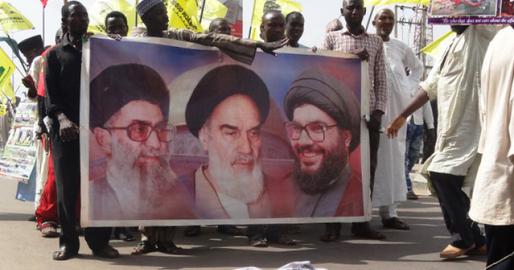
Despite the fact that the leader of IMN is currently charged with murder, his followers have continued to hold street protests demanding his release. All the around 200 IMN members arrested alongside Zakzaky and separately charged for the same offence were acquitted due to a lack of evidence.
For its part, the Nigerian government accused Zakzaky of trying to use the India trip as a pretext to flee and seek asylum in Iran, from which, they assumed, he would continue encouraging his followers to launch an Islamic revolution in Nigeria. The IMN has also denied this.
At the resumed hearing of Zakzaky’s murder trial in December 2019, four months after the botched Indian medical trip, Iranian propaganda about the situation resumed apace. Nigerian authorities, the new line went, had transferred Zakzaky from the custody of the domestic intelligence services to prison despite his ill health as a further form of persecution. On December 6, 2019 PressTV ran a story with the headline “Nigeria transfers Sheikh Zakzaky to 'dilapidated' jail.”
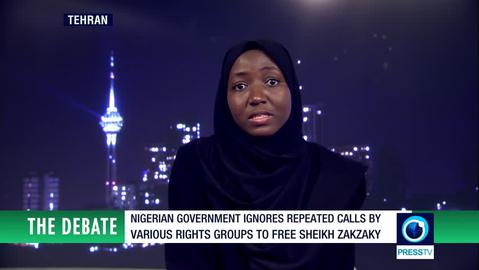
These stories ignored the fact that the court had ordered the relocation at the request of Zakzaky’s own lawyers, who argued his being in prison would allow them unfettered access to their client, accusing the DSS holding Zakzaky of not allowing them access to him.
Iran is deeply involved in the IMN’s conflict with the Nigerian state. In a multi-cultural society like Nigeria, where religious as well as ethnic identity is already an explosive issue, this could cause untold harm. On the wider geopolitical stage, Iran is using IMN as a pawn in its struggle with its Saudi adversary by spinning propaganda that emboldens IMN in its conflict with the government, with no care whatsoever for the security and social damage it may cause.
Read other articles in this series:
How Hezbollah Courted Argentina
visit the accountability section
In this section of Iran Wire, you can contact the officials and launch your campaign for various problems




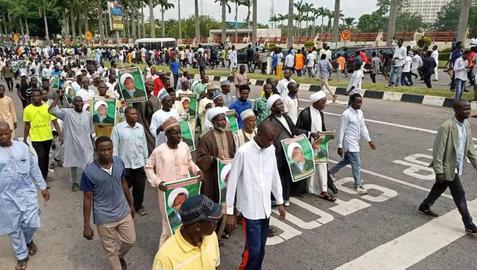
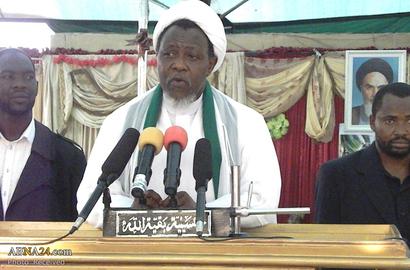
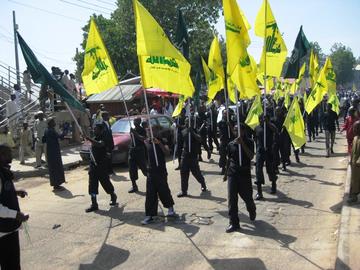
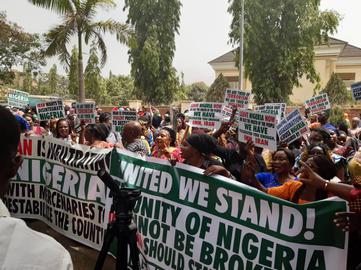
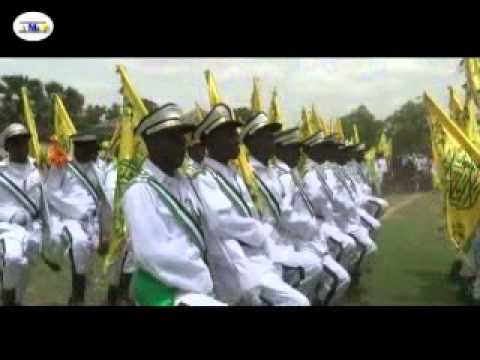
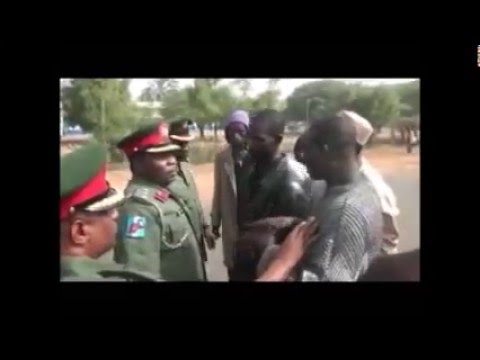
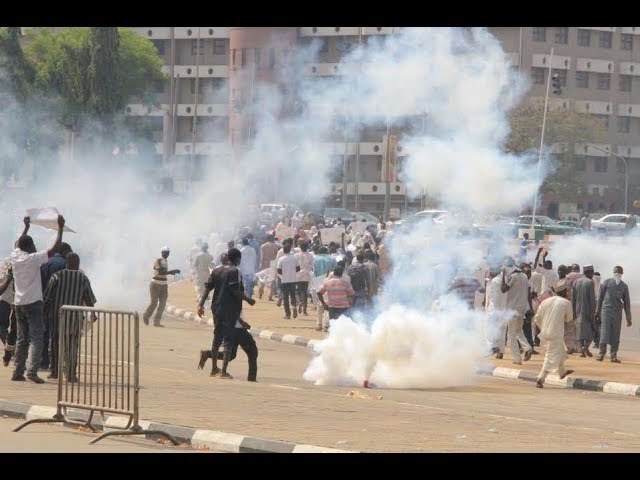
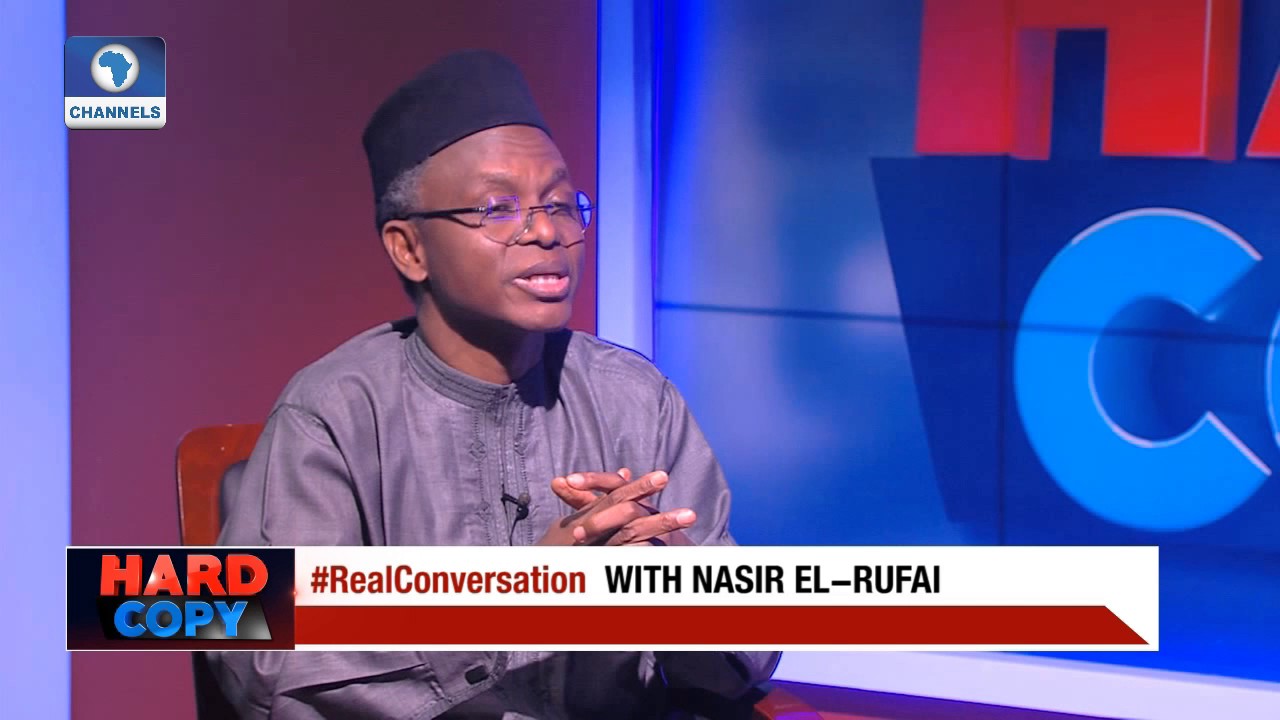
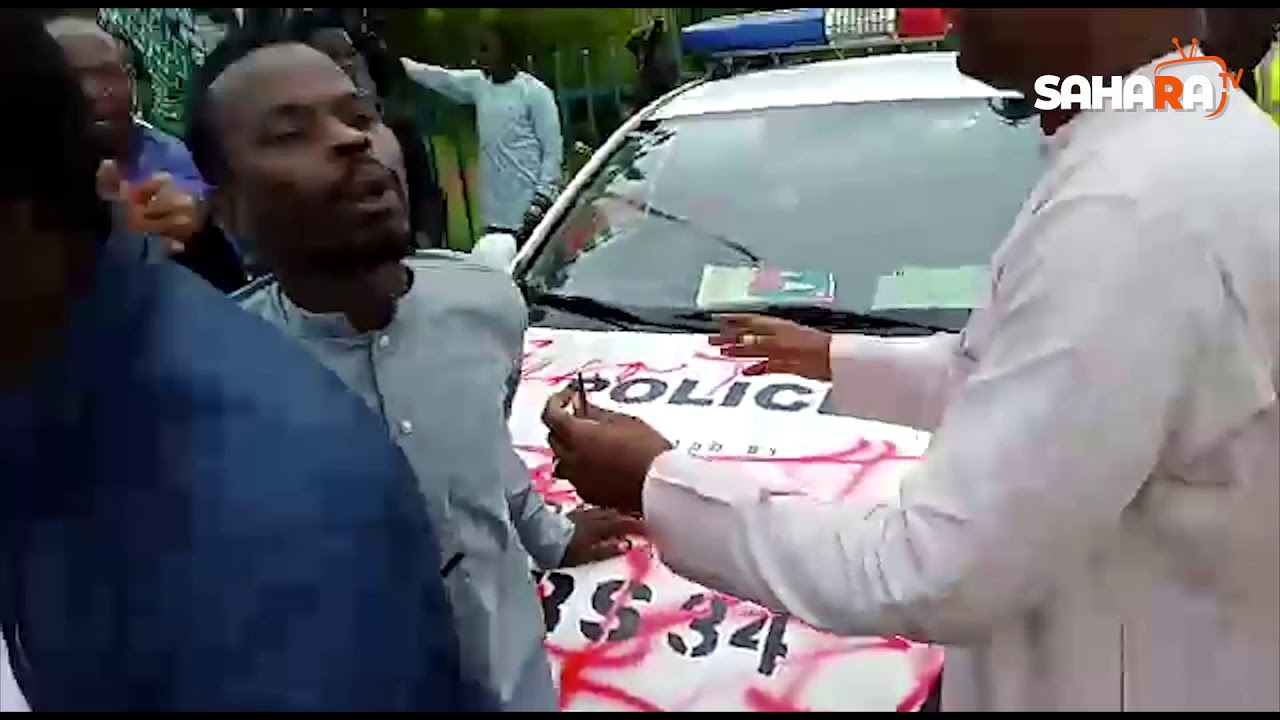
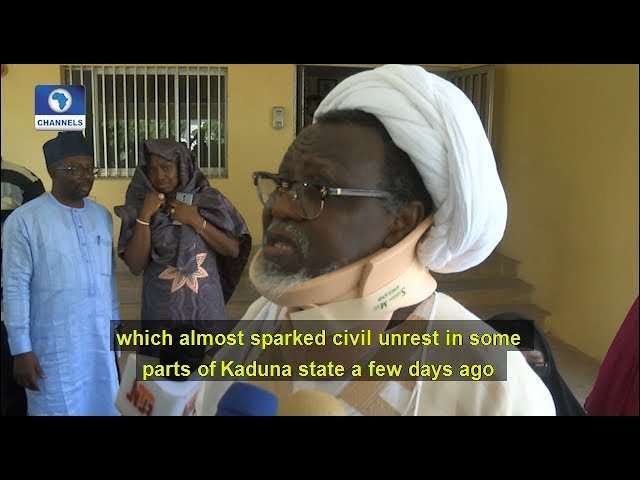
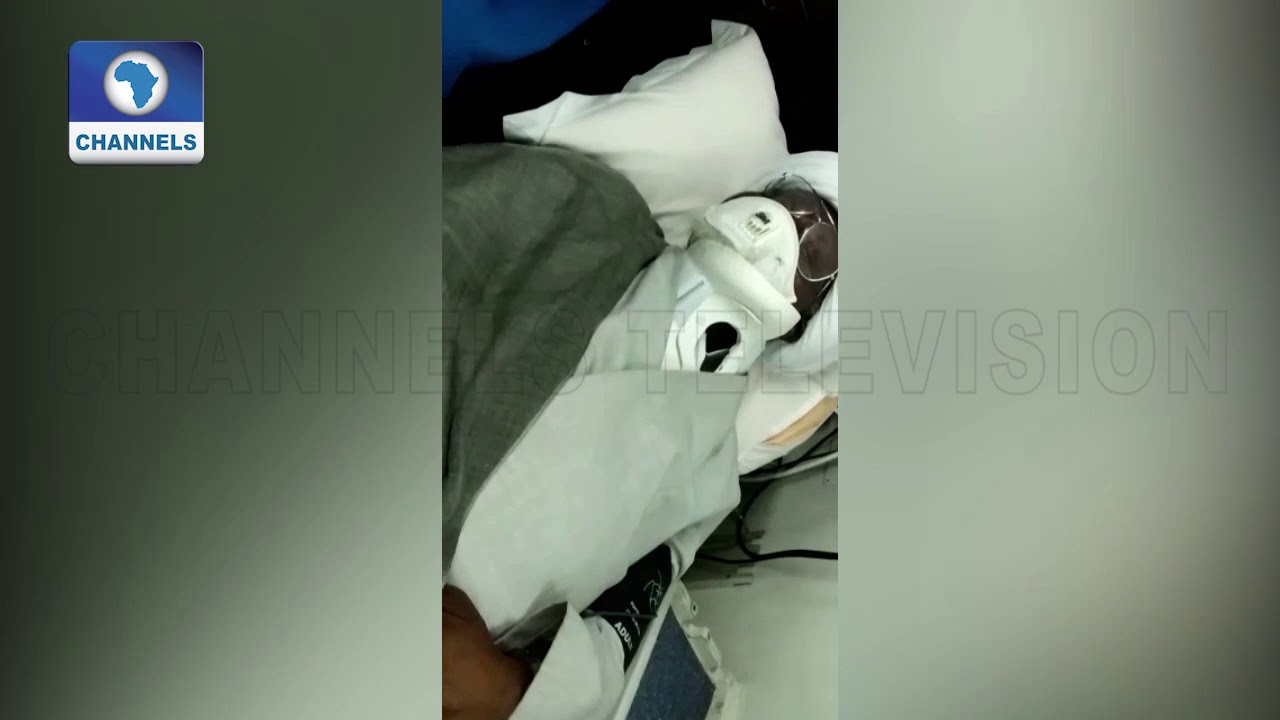
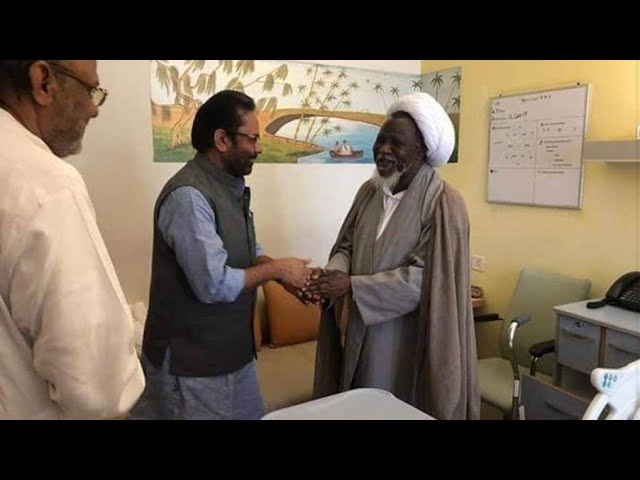



















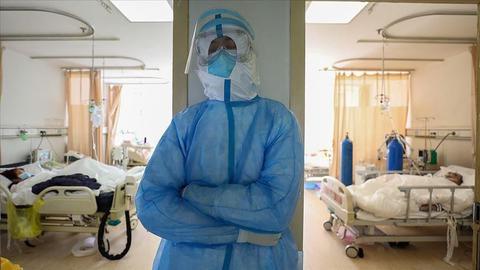
comments